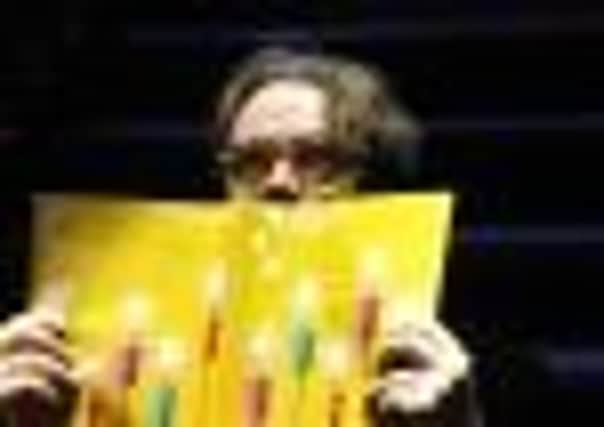Andrew-Eaton Lewis: EIF theme works against the festival more than it does for it


It’s strange, then, that this is barely acknowledged in the programme for the 2013 Edinburgh International Festival, whose big theme is the way new technology shapes the kind of work artists make.
Strange, but not surprising. The EIF is more conservative than it is prepared to admit. Look at the non-classical part of its music programme this year, for example – Patti Smith and Philip Glass, new music by Laurie Anderson, a reinvention of Frank Zappa – and you’d think musical innovation stopped in the early 1980s.
Advertisement
Hide AdI’ve always had mixed feelings about director Jonathan Mills’ insistence on a big festival theme. Despite some neat ideas and connections, it has often just seemed like intellectual showboating.
This year, I fear, the theme works against the festival more than it does for it. It’s a strong programme, but the failure to explore the impact of the internet is a distracting flaw, and I think Mills knows it. Why else has he included FOUND’s Cybraphon, an emotional robot whose mood is shaped by online opinion? It’s a great project, but it was launched on the Fringe four years ago so it’s difficult to see why it’s in the EIF now, other than as an awkward plug for a thematic hole. If Mills likes FOUND, why not commission them to make something new?
And, while he’s at it, where are the theatre-makers using the internet, and related innovations like smartphones and GPS, to push the artform in new directions? Where are Tim Etchells, Blast Theory, Duncan Speakman, or Hide & Seek? Instead we have the Wooster Group performing Hamlet with TV screens – a familiar company, doing Shakespeare. That’s box-ticking, not big thinking. And the show is six years old.
Too harsh? Possibly. Composer Tod Machover’s new piece Festival City will exploit the internet, to a degree, with audience members invited to use a music app to help him write it. Nice touch. For the most part, though, the technology theme is more coherent the further back in time you go – to electronic music by Marco Stroppa or Stockhausen, or right back to Mozart exploring a new instrument called a clarinet.
A show by pioneering video artist Nam June Paik makes perfect sense in this context too. But much of the newer work, on paper at least, seems either misplaced (American Lulu is no more about technology than last year’s similarly conceived Fringe hit, Mies Julie) or hokey and dated. An opera set on a spaceship? Come on. «
• Last week Andrew... was happy to hear that 24, the movie, has officially been abandoned. I mean, what was the point? Unless they’d actually made it 24 hours long. Hollywood makes an avant-garde durational artwork. Now that could have been interesting
Twitter: @Aeatonlewis